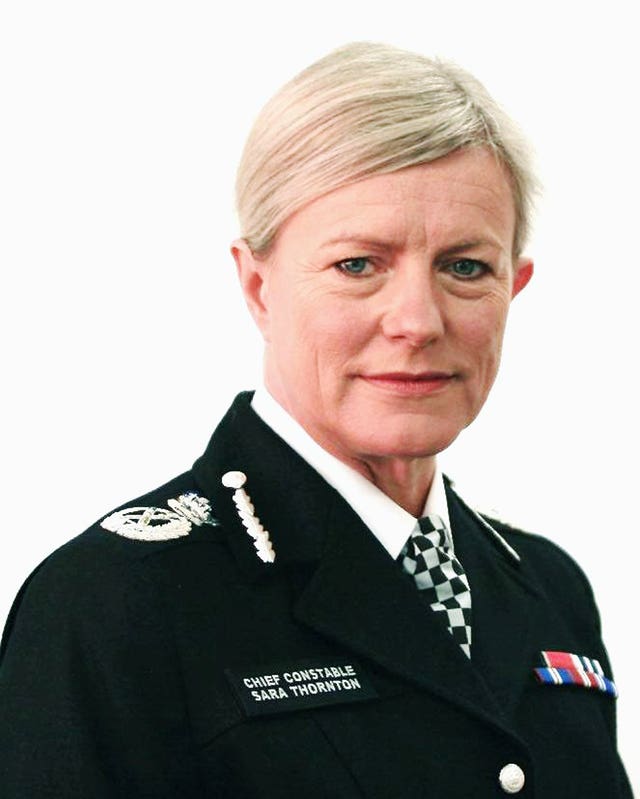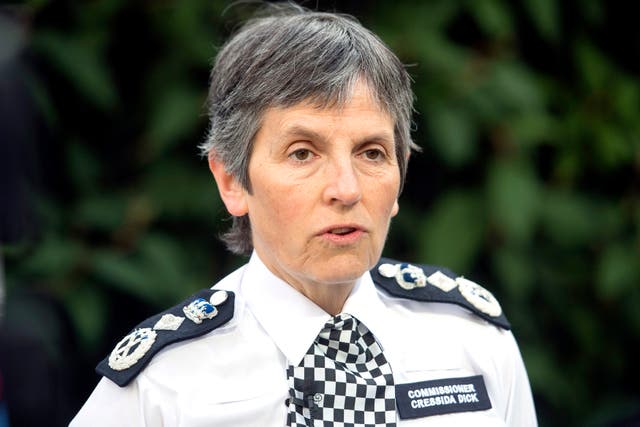Officers need to make more use of stop-and-search powers, police chief warns
The rising wave of violent crime meant the number of suspected murders in March was higher than that of New York.

Stop-and-search powers are not being exercised enough in the fight against violent crime, one of Britain’s most senior police chiefs has warned.
Sara Thornton, chairman of the National Police Chiefs’ Council, said that a backlash against the controversial powers had gone too far while rates of gun and knife crime have surged.
Some 300 extra officers are being deployed in badly hit parts of London amid a spike in deadly violence, while the Metropolitan Police Chief Cressida Dick had to insist the force had not lost control of capital’s streets.

Making her case in an article for the Daily Telegraph, Ms Thornton wrote: “This power may have been used too freely in the past, but the pendulum has now swung too far in the opposite direction.
“Our officers must know that we back them to use their powers – lawfully and respectfully, but with confidence.”
It emerged on Thursday that the Met has opened 55 murder investigations in London this year and there were six non-fatal stabbings from Thursday night into Friday morning in the capital.
The rising wave of violent crime meant the number of suspected murders in March was higher than that of New York.
On Friday a 30-year-old man was arrested in Hackney over the murder of Tanesha Melbourne-Blake, 17, who was gunned down in Tottenham on Monday.
The teenager was killed in a drive-by attack as she sat chatting with friends in a killing that shocked the capital.
Ms Dick said the spate of violence in the capital was “very worrying”, describing the spike as “unusual”.
She defended the Met’s record of bringing criminals to justice and said she believed the perpetrators of the recent killings would face the courts.
On Friday afternoon a section 60 order, granting police stop and search powers across the Borough of Newham, was announced in response to an incident where a 13-year-old boy was stabbed in Gainsborough Avenue on Thursday.
A Met officer told the Press Association said stop-and-search efforts on members of the public had been increasingly uncovering weapons.
However Sergeant Paul Perversi said that the popularity of smartphones and social media has “massively” encouraged more people to challenge officers during a search, with many people stopping to film the process and post footage online.
“I would say it happens more often than not,” he said.
“If you stop two people out of 10, you will have five people who get their phone out. Then you go and search on YouTube and I’m there.”

Meanwhile the use of stop and search has fallen dramatically, with section 60 powers falling in use from 1,429 instances to 23 between 2011/12 and 2016/17 in London.
As a policing method, stop and search has been criticised for disproportionately targeting poorer areas and ethic minority groups.
Head of Thames Valley police between 2007 and 2015, Ms Thornton said that police were trained to exercise the powers with “dignity and respect”, while advances such as body-worn cameras could increase public support for the method.
She wrote: “I am not advocating random stop and search, or abusing our powers in headlining-grabbing crackdowns. I am advocating policing that we know works, targeted patrols of hotspots, with our officers certain we are behind them to use their judgment and their powers in the public interest.”





